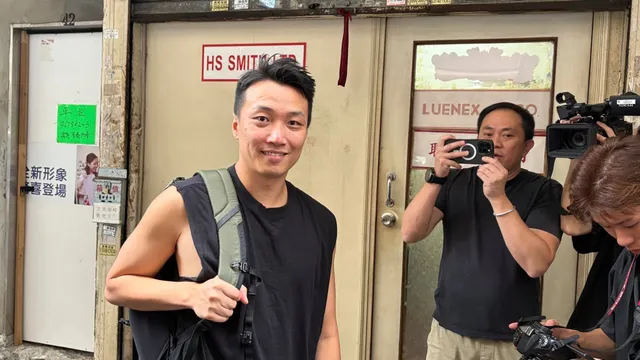
Jimmy Sham released from prison after four years for pro-democracy activism
2025-05-30 09:04- Jimmy Sham was released from prison after serving over four years for his activism against national security charges.
- While in prison, he successfully advocated for legal recognition of same-sex partnerships, marking a significant decision for the LGBTQ+ community in Hong Kong.
- Sham expressed happiness upon his release but emphasized awareness of ongoing suffering among other activists still imprisoned.
Express your sentiment!
Insights
In Hong Kong, pro-democracy and LGBTQ+ activist Jimmy Sham has been released from prison after serving over four years related to the national security crackdown on dissent. Sham was part of a larger group of 47 activists charged for their involvement in an unofficial primary election organized in 2021, a move seen as an attempt to challenge the ruling authorities. A court ruling against the group cited their intended actions as a threat to governmental authority, resulting in his conviction and the subsequent imposition of harsh sentences on many of his peers. Sham's activism gained significant attention during the 2019 protests, where he organized large-scale peaceful demonstrations advocating for democratic reforms and equality for the LGBTQ+ community. Despite his release, he expressed concern for the ongoing struggles faced by others still imprisoned and the uncertain political atmosphere in Hong Kong. During his time in prison, Sham continued to advocate for the recognition of his same-sex marriage, achieving a historic ruling acknowledging the need for a framework for same-sex partnerships to be established by the government. Following his release, Sham stated he does not plan to leave Hong Kong but is cautious about future actions, indicating a complex situation where freedom has conditions and uncertainties. The broader implications of the national security law, which critics argue has stifled political expression in the city, heighten the apprehension surrounding Sham's release and the future of democracy in Hong Kong. His return marks only the second wave of releases from this significant high-profile case, creating both relief and anxiety within the pro-democracy movement as activists continue to navigate an oppressive legal landscape.
Contexts
The status of pro-democracy activists in Hong Kong remains a pressing and complex issue as of May 30, 2025. Since the implementation of the National Security Law in June 2020, the landscape for political dissent and activism in Hong Kong has dramatically shifted. The law, which criminalizes secession, subversion, terrorism, and collusion with foreign forces, has been utilized by authorities to crack down on protests and suppress pro-democracy movements. As a result, many activists have faced arrests, legal charges, or have been forced into exile, leading to a significant decline in visible pro-democracy activities in the region. The chilling effect of the law has created an environment where fear and uncertainty pervade civil society, effectively silencing many voices that once actively advocated for greater democratic freedoms and human rights in Hong Kong. In addition to the legal repercussions, the socio-political climate in Hong Kong has evolved with increased surveillance and restrictions on freedom of expression. Civil society organizations, which traditionally played a pivotal role in mobilizing support and facilitating discussions, have experienced severe operational limitations. Many have disbanded or self-censored to avoid potential repercussions from the government. The media landscape has also changed, with numerous independent outlets shutting down or being coerced into adhering to pro-government narratives. While some activists continue to find creative ways to express their dissent, they do so under the constant threat of severe penalties, rendering their activism more clandestine and isolated. International responses to the situation have varied, with some countries vocally supporting Hong Kong's pro-democracy movement while imposing sanctions on key figures within the Hong Kong government and mainland China. Human rights organizations continue to document cases of human rights abuses, pressing for accountability and urging the international community to intervene on behalf of Hong Kong residents. Despite these efforts, the effectiveness of international pressure remains uncertain, as China's commitment to maintaining control over Hong Kong appears unwavering, creating a significant barrier to meaningful change in the region's governance and human rights practices. Looking ahead, the future of pro-democracy activism in Hong Kong hinges on multiple factors, including the resilience of local activists amid extreme repression, the international community's response, and the long-term strategies employed by both pro-democracy groups and the government. The rise of youth-led movements remains a beacon of hope, as younger generations continue to challenge the status quo, albeit under increasingly difficult circumstances. Nevertheless, the road ahead is fraught with challenges, and the status of pro-democracy activists will likely remain precarious as long as the current political environment persists.